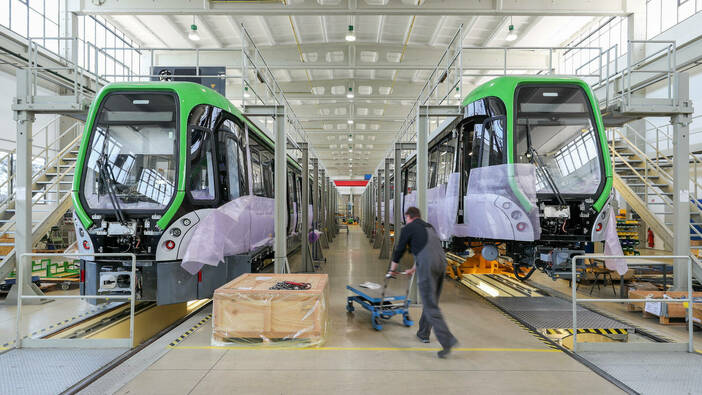
To protect both the environment as well as jobs in the industrial sector, Germany needs consistent steps towards a just transformation of mobility, a social-ecological restructuring of the mobility industries, and just transitions for those affected. The Rosa Luxemburg Foundation has set out to do just that.
Mario Candeias is the director of the Rosa Luxemburg Foundation’s Institute for Critical Social Analysis in Berlin.
We went to the companies and asked our colleagues in the automotive, but also in the train and bus industries what is on their minds and what possible prospects could be. We held company seminars, forums, and conferences with workers, trade unions, and environmental activists. We closely watched the cooperation between the service sector union Ver.di and Fridays for Future in the latest round of collective bargaining in local transport, and tested in practice how a bridge between trade unions and the climate movement could take place not only on paper.
Beyond that, we examined the situation and future of the mobility industries and developed concepts for their transformation. Of course, these are not ready-made blueprints, but per spectives, concrete entry projects, and starting points — as a proposal for further discussion. We proceed from a simple assumption, which is far from consensus in the current debate: namely, that such a transformation requires a different kind of industrial production — and in general an incredible amount of labour power. We have calculated how large this employment potential can be in two different scenarios.
You can read all this on a total of over 400 pages in our study. Then again, who reads 400 pages? We’ve summarized the most important findings for you here and in an accompanying video clip. Read it, pass it on, discuss, criticize, and build on it.
Want to learn more about our perspective on a just mobility transition in Germany, but don’t speak German? We condensed the most important findings from our wide-ranging study into a policy paper — check it out here!
